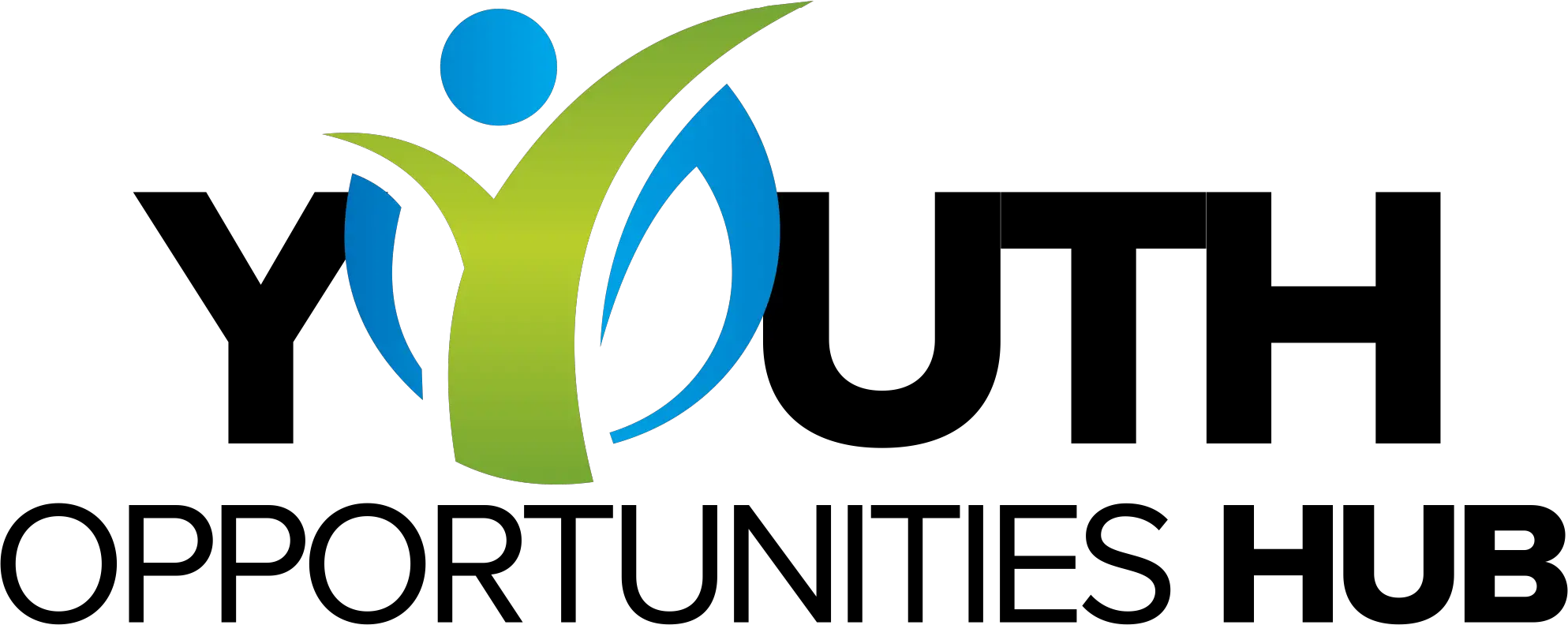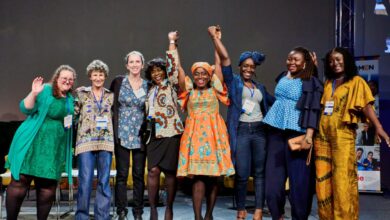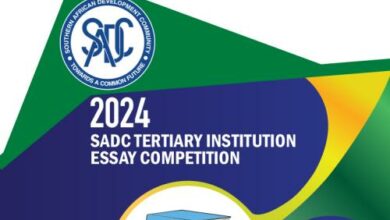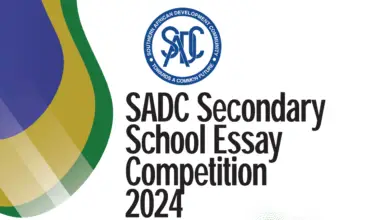WE-ACCOUNT SOCIAL INNOVATION CHALLENGE 2020-2021

Apply for the We-Account Social Innovation Challenge 2020-2021
Deadline: 11 April 2021
About We-Account Social Innovation Challenge
Overview
Innovation for Change (I4C) Africa Hub is introducing the We-Account Social Innovation Challenge (SIC) 2020/2021 around its three (3) key thematic areas of Government Accountability & Transparency, Supporting Marginalized & Vulnerable Communities, and Community Rights & Resilience in response to the COVID-19 pandemic, arguably the greatest challenge facing the continent and world to date.
I4C Africa Hub is pleased to announce the call for applications for this initiative which encourages organizations across the region to work together and come up with innovative ways to bring about social change. The I4C Africa Hub encourages youth organizations, CSOs, cooperatives, community or people’s organizations, and social enterprises across the region to find and scale innovative solutions (that are either technology related, policy relevant, related to research or advocacy) in response to the COVID-19 pandemic that can produce long-term change for the continent with the aim of deepening their social impact in more sustainable ways through entrepreneurship.
Key Themes
The We-Account SIC 2020/2021 initiative will be based on the following three (3) overarching themes:
● Government Accountability & Transparency
- Mitigating opportunities for embezzlement and misuse of resources devoted to COVID-19, supporting oversight of rescue packages and economic stimulus measures, or defending rights, access to information, and civic space that may be impacted by COVID-19 emergency measures
● Supporting Marginalized & Vulnerable Communities
- Launching support networks for marginalized and vulnerable communities including women, youth, refugees (and more), and creating innovative solutions that connect vulnerable communities to local governments and/or international or regional human rights platforms
● Community Rights & Resilience
- Enhancing communities’ understanding of their human rights during a crisis, harnessing civic innovation towards communicating real-time, accurate information about COVID-19 and associated human rights
information in hard-to-reach community members, and reinforcing peoples’ involvement with government response.
About the Innovation for Change (I4C) Africa Hub
Launched in 2017 and based in Nairobi, the Innovation for Change (I4C) Africa Hub is a vital new physical and online space for regional ideas and social innovations, powered by its dynamic, growing community of civic space advocates from Civil Society Organizations (CSOs), technologists and cross-sectoral partners.
Innovation for Change (I4C) is a global network of people and organizations who want to connect, partner and learn together to defend and strengthen civic space and overcome restrictions to our basic freedoms of assembly, association and speech. It is a community-led network inspired by ideas, methods, and technologies from across different sectors. It works together with other organizations on advocacy, research, network building, education and training, fundraising, digital literacy and technology development. Its six (6) connected regional hubs are growing in both physical and online spaces across Africa, Central Asia, East Asia, South Asia, Latin America and the Caribbean (LAC), the Middle East, North Africa (MENA), and the Pacific. Here, people exchange ideas and share their successes, challenges and opportunities in incubating social change and building sustainable solutions.
The Hub is working to strengthen the capacity of civil society and through home-grown African solutions as well as being part of a global network that offers network members access to the latest thinking, resources and collaborations.
Timeline & Structure
The We-Account SIC 2020/2021 initiative will take place over the span of a little over a month. The Judging Panel will evaluate and select the top eight (8) applications to be selected as Winners.
| Wednesday, 10th March 2021 | We-Account SIC 2020/2021 Call Launch |
| Sunday, 11th April 2021 | Applications Closed |
| Wednesday, 12th May 2021 | Winners Announced |
Application Guidelines
This initiative seeks promising ideas in the form of research, activities on the ground, new technology, an app; or a training tool that can affect change within the three (3) thematic areas. These could be related to technology, policy, research, or advocacy. They could also act as an incentive for meeting a specific challenge, rather than being a reward for past achievements, and should have the potential to produce long-term change and deepen social impact on the African continent.
The initiative also aims to encourage the engagement and participation of people and organizations to work together across the region to come up with innovative ways to solve a particular challenge so as to bring about social change. Proposed projects can be focused on one African country or multiple countries across the continent.
Eligibility
- Applicants can be an individual or a team as large as five (5) people.
- Applications for the We-Account SIC 2020/2021 initiative are open to all types of organizations based in Africa whose team members have worked for more than two (2) years in their local community. The I4C Africa Hub encourages youth-based and women organizations, Non-Governmental Organizations (NGOs), grassroots movements, community or people’s organizations, and social enterprises. If you are not a registered organization in your country, we encourage you to partner with a registered organization.
Criteria
- Audience Expansion – the social impact on the number of countries or the number of people served by this particular service/product once the pilot has been tested and shown to be successful. A good example is Know Your Rights Nigeria – Project of Constitutional Rights. This project has a strong approach to doing outreach and informing citizens of their rights.
- Association – the expansion of the project/size/coverage through collective efforts that are coalition-based and network-based and focus on the three key themes of Government Accountability & Transparency, Supporting Marginalized & Vulnerable Communities, and Community Rights & Resilience.
- Technology Enhancer – the product/service is accompanied by the development of a feature or a technological function, such as adding a social media analysis tool, to an advocacy app to enhance its use.
Benefits
- Eight (8) of the best innovative initiatives across the continent’s sub-regions (East, South, North, West & Central Africa) will be provided with a small grant of up to $10,000 each for research and design support to help with scale-up.
- In addition to the monetary award, following implementation, the 20/21 Winners will receive support and mentorship for a year from the I4C Global network, to identify and collect evidence and best practices at the sub-regional level, on innovative initiatives via a Learning and Evaluation Lab (L & E Lab) for the grantees to build their capacity based off of the Communities of Practice (CoP) sessions held by the I4C Helper Hub/HH Development Evaluation team.
- The L & E Lab will be a platform for the 20/21 Winners to assess project outcomes, impacts and capture learnings and best practices. As a part of the Lab, the innovators will prototype their strategies and test them out with some of the members of the Hub; creating multi-media exhibitions of their projects which will showcase their innovations, outcomes and impacts.
Apply
- Visit the We- Account SIC 2020/2021 Platform to download the Challenge Application Guide to review requirements and application questions.
- Applications will be open as of the 10th of March from which time you can complete and submit your application on the SIC 2020/2021 Platform.
- Follow the We- Account SIC 2020/2021 on social media: Facebook, Twitter, YouTube and Instagram.
- Spread the word! Use the following hashtags when sharing: #SIC2021, #WeAccount2021 and #I4CAfricaHub
The submission deadline is 11th of April 2021. For more information on this initiative, please visit the website for the We-Account Social Innovation Challenge (SIC) 2020/2021: www.weaccount.org.
If you have any questions, please write to us at [email protected].
Application
The application form has three (3) primary sections; 1) Questions; 2) Innovation Strategy/Plan; and 3) Personal Form/s. These are outlined below for ease of preparing your application which can be submitted on the We- Account SIC 2020/2021 Platform from the 10th of March, 2021 to 11th of April 2021.
Application Questions
- Project title
- Name of implementing agent(s)
- Number of Team Members (1-5)
- Project location
- Proposed starting date
- Project duration
- Describe your organization in 350 words or less
- What is the problem you are addressing? (100 words)
- What is the main way your idea is addressing this problem? Select one or all of the ones that apply:
- Technology
- Policy
- Research
- Advocacy
- Other: please specify
- How does your idea address in one or more of the three key thematic areas, the challenges of: (1) Government Accountability & Transparency; (2) Supporting Marginalized & Vulnerable Communities; and (3) Community Rights & Resilience in response to the COVID-19 pandemic on the continent?
- What region/s does your application cover on the continent? (1) North Africa;
(2) East Africa, (3) West Africa; 4) Central Africa; or 5) South Africa
- Why is your team passionate about your idea? (100 words)
- Why are you and your team members the perfect team to lead this project? (200 words)
- What type of structure is your organization? Select one or all of the ones that
apply:
- Youth-based organizations
- Women’s organizations
- Civil Society Organizations (CSOs)
- Community or people’s organizations
- Social Enterprises
- African-based organizations
- Other: please specify
- Who are your partners and how are you different? (200 words)
- Which milestones have you reached to date? (project concept defined, tech app/website built, the organization registered/incorporated, funding raised)
- What are the main obstacles you face implementing your idea? What are some key considerations, e.g., funding, networks, etc.
- What is your plan for addressing these challenges for implementing your idea?
- To what extent will your idea use technology such as a mobile application, website, training tool, social media and/or an advocacy tool?
- Do you have a website for your business? Please share the address.
- How did you hear about this competition?
- Please upload three (3) images (photos, drawings or diagrams) that depict your project whether in practice or idea phase.
Innovation Strategy/Plan
The Innovation Strategy/Plan has five (5) sub-sections of approximately 500 words each:
- Background and Justification of the Project
- Project Implementation and Management
- Sustainability and Scalability of the Project
- Project Monitoring and Evaluation
- Project Budget
There will be three (3) months of implementation/scaling up of the best eight (8) initiatives by the SIC 2020/2021 Winners; until the end of May 2021. The I4C Africa Hub will provide up to $10,000 USD in seed funding for each project to be implemented.
Background and Justification
Provide a brief introduction to the current social and economic situation related to the geographic region and beneficiaries of the project. The background should also describe:
- The problem or critical issue which the project seeks to resolve
- How the project relates to other relevant national development strategies and policies
- Whether there are other programmes and activities in the region which will complement the project
- How the need for the project was determined
- How intended beneficiaries were involved in project identification and planning
- What kind of assistance the concerned Governmental offices will provide
- What kind of resources the Implementing Agency and other non-governmental organizations will provide
As a non-governmental organization preparing this proposal, it is important to describe how concerned Governmental officials were made aware of and/or were involved in project formulation.
Finally, the section should describe the relevant experience and capabilities of the project Implementing Agent, and the type and level of resources that the Implementing Agent will provide for project planning, implementation management and follow up.
Project Implementation and Management Plan
Expected project results
Describe the overall results that the project is expected to accomplish and whether there may be unintended effects of the project, and how these possible challenges will be addressed.
This section should indicate in quantitative terms, to the extent possible, what the project will produce through its planned activities and budget.
Project activities and work plan
Describe how each immediate project objective will be carried out in terms of planned activities, their timing and duration, and who will be responsible for each activity. This can be summarized in a simple table.
| Planned Activity | Timing/Duration | Person Responsible |
Project Beneficiaries
Describe who and how many people are expected to benefit from the project, both directly and indirectly. It should also discuss how intended beneficiaries have been involved in project design, and their expected role in project implementation and evaluation.
Sustainability and Scalability of the Project
This section should discuss whether project operations are expected to continue, or expand to other areas or sectors, once the current phase of assistance is completed. This could include plans for introducing self-financing provisions to ensure continued viability of operations on project completion.
It should describe:
- How can the idea be replicated in other parts of the country or region?
- How can the idea provide actionable insights for decisions to be made at the sub-regional level?
- How can the idea be implemented or even maintain longevity as it grows larger?
- How the idea can continue to exist/function as it expands in scope? Can it grow and increase access to a broad range of people?
- What mechanisms are being/have been put in place to ensure that the project does not come to a halt after the total grant amount being provided by the I4C Africa Hub (US$ 10,000 USD) has been exhausted?
Project Monitoring and Evaluation
Discuss proposed mechanisms and procedures for monitoring of project operations to ensure that activities occur as planned, that they remain directed towards stated objectives, and that appropriate corrective action is taken, if required.
Specifically, the discussion should indicate who will be responsible for preparing periodic project progress and final technical reports and for the accounting of expenditures, to be submitted to the I4C Africa Hub. All projects need to be evaluated on completion. This section should also identify the party who will be responsible for this task, as well as how intended beneficiaries will be involved.
Budget
The budget for the We-Account Social Innovation Challenge (SIC) 2020/2021 should be prepared in U.S. dollars. An additional budget should be prepared to describe the budget components to be financed by the Government, Project Implementing Agent and other parties participating in the project.
A description of the budget line items (with internal classification codes) are:
- Project Personnel:
The resources of the We-Account Social Innovation Challenge (SIC) 2020/2021 can finance project personnel specialized needed to plan and carry out the project or specialized consultant services required to accomplish a specific project objective. Salaries and consultancy fees should be reflective of local prevailing conditions. The
We-Account Social Innovation Challenge (SIC) 2020/2021 does not prioritize projects with high personnel costs.
- International Experts: for international personnel working for more than six
(6) months on the project. Job description/Terms of reference should be included in the project document.
- Consultants: for personnel working for less than six (6) months on the project. Job description/Terms of Reference should be included in the project document.
- National Professional Project Personnel. Job description/Terms of reference should be included in the project document.
- Administrative Support: for clerical and related support tasks. Please note that financing of project support personnel is not a priority for the We-Account Social Innovation Challenge (SIC) 2020/2021.
- Official Travel of Project Personnel.
- Subcontracts: This component pertains to specialized services provided the project by an outside contractor. Each subcontract will require a separate budget line; subcontractor terms of reference should be attached as an annex to the project document.
- Training:
- Group training and study tours: organized training programmes and study tours conducted outside the country of the project; group training normally does not exceed two months and study tours normally are one month or less;
- In service training: cost of individual and group training organized and conducted in the country of the project.
- Equipment:
- Expendable equipment: items of equipment, supplies or training materials valued at less than US$400.
- Non-expendable equipment: items of equipment valued at US$400 or more or which have a serviceable life of five (5) years or more. NOTE: Normally, the resources of the We-Account Social Innovation Challenge (SIC) 2020/2021 will only support acquisition of equipment needed for training or applied research.
- Premises: The We-Account Social Innovation Challenge (SIC) 2020/2021 will not fund costs for premises (construction, rent, utilities). This line item
should only be used to indicate any contributions from other donors, the Government, or the Implementing Agent.
- Miscellaneous:
- Operation, Maintenance and Repair of Equipment: operation and maintenance of project equipment that cannot be covered by the Host Government or the project Implementing Agent.
- Publications and Report Costs: report costs, which may include the reproduction of a reasonable number of copies of project technical and final reports.
- Sundry and Communications: official postage, communications and incidental supplies.
Personal Form – for each group member
First Name Surname Nationality
What is the highest level of education you have completed? Gender
Twitter handle (if applicable) Address
Phone Number
- Tell us about your experience working in this community to date and how it is relevant to this idea?
- Acceptance to Rules and Regulations
Tips to complete the application
- Understand the issue the WE-Account Social Innovation Challenge (SIC)
2020/2021 is designed to address.
- Pay careful attention to the requirements and timeline of the Challenge.
- Review Eligibility Criteria, Judging Criteria, Application Questions, and understand what you will need to complete.
- Double check that your idea properly responds to the needs of the people in
your sub-region.
- Ask additional questions if you are unsure about any aspect of the Challenge via [email protected]
- Complete the online application form in full by the deadline.
And remember, even if you don’t get selected as a winner for the WE-Account Social Innovation Challenge (SIC) 2020/2021, the fact that you have been inspired to come up with an idea is a great start! If you believe in your idea and demonstrate that, someone will believe in you!
Challenge Guidelines
The We-Account Social Innovation Challenge (SIC) 2020/2021 is governed by these guidelines.
Innovation for Change (I4C) Africa Hub reserves the right to revise these guidelines at their sole discretion if deemed necessary or desirable to provide additional information or to improve the quality of the Challenge.
Should any further revisions be required, the I4C Africa Hub will document, share and notify both Applicants and Judges accordingly prior to the evaluation and selection process.
Judge Rating Scale and Scoring Criteria
The selection panel will assess against the below listed criteria of six (6) as well as a rating scale of 1 to 5. Each scoring criteria has relative weighting and a maximum score of 100 percent.
Judge Rating Scale
Each criterion will be assessed according to the quality outlined below.
| 5 | Outstanding | Significantly exceeds the criterion required for success. |
| 4 | Excellent | More than exceeds the criterion. |
| 3 | Good | Exceeds the criterion. |
| 2 | Adequate | Meets the criterion. |
| 1 | Inadequate | Does not meet the criterion. |
| 0 | Cannot be assessed on the evidence provided. |
Judge Scoring Criteria
- Criteria 1: Sustained Impact/Sustainability (25%) How transformative is the idea? Does the idea demonstrate potential sustainability? Does the idea provide actionable insights for decisions to be made at the sub-regional level?
- Criteria 2: Scalability (25%) To what extent is the idea capable of coping and performing as it expands in scope? Will it be able to be implemented or even maintain longevity as it grows larger to fulfil a particular need, without being hampered by its structure or available resources when faced with increased demand? With larger operational demands and/or increased production, has the idea been accompanied by the development of a feature or a technological function, e.g., social media analysis tool, advocacy app, to enhance its use, all the while keeping production costs low enough to continue to function, grow and increase access to a broad range of people?
- Criteria 3: Innovativeness/Innovation (20%) How unique is the idea? Does it already exist? Does the proposed idea offer a creative approach to one or more of the three key themes? Is it different from existing approaches?
- Criteria 4: Execution/Feasibility and Evaluation Plan (15%) Does the approach to the implementation, monitoring, and evaluation of the idea demonstrate appropriateness, clarity, and logic? Are the objectives realistic and within the budget and time period allocated?
- Criteria 5: Knowledge Creation (10%) Does the idea demonstrate the creation of new knowledge? Will it help establish a body of knowledge that can bring about a sustained change? Does it promote the use of information to provide new insights and ideas through social exchanges and cooperation? Will it improve interactions between organizations, institutions and/or individuals?
● Criteria 6: Organizational Capacity and Partnerships (5%)
Does the Applicant and its partners have the necessary depth and breadth of talent, experience and leadership to transition to scale and sustain the project?
Rules and Regulations
- All elements submitted as part of the Application must be the work of an individual, group or organization based in Africa.
- Submissions should be the original work of the entrants. Submissions must not copy or use other materials without properly citing the source.
- All submissions must be in either English, French, Arabic or Portuguese.
- The basic information included in applications (team name, product name, location of team/organization/company, possibly team member names, and
link to photos or videos) that are selected will be posted publicly on the I4C Platform.
- It is the responsibility of each team applying to the We-Account Social Innovation Challenge (SIC) 2020/2021 to determine how much detail about their concept to include in their application. All applications submitted to the SIC 2020/2021 Platform are private, and will be viewed only by I4C and the Challenge Judges. However, when an application is selected as a Winner, elements of the applications will be made publicly available. Therefore, it is advised not to post any proprietary information about your concept. Please refer to the section titled “Intellectual Property (Confidentiality and Patents)” for more guidance. Participants indemnify I4C against any and all claims from any third party for any use or reproduction of the participant’s submission.
- I4C reserves the right to use basic information about the Applicants of the We-Account Social Innovation Challenge (SIC) 2020/2021, basic information about Judges and photos taken to promote the We-Account SIC 2020/2021 competition. Possible team information for use includes, but is not limited to, the following: elements from the application, pictures and team member names. The We-Account SIC 2020/2021 will not use such information for any other purpose without consent of the Applicants and Judges.
Protect Your Privacy
- Do not provide unnecessary personally identifiable information (such as social security numbers, credit card numbers, driver license numbers) online, which may be inadvertently obtained by others or, in rare instances, used for illegal or harmful purposes.
- Judge’s personal information will not be shared with applicants or posted on the I4C Platform. Judging is kept anonymous to the public and teams.
No-Spam Policy
1. Please do not “spam” through our communication services; none of our users like it. To spam includes but is not limited to: sending identical and irrelevant submissions to many different discussion groups, mailing lists, chats or communities. Usually, such postings have nothing to do with the particular topic of the group or are of no real interest to those on the mailing list. All spam will be deleted and the person who sent it may be ejected from the online community and/or the We-Account Social innovation Challenge (SIC) 2020/2021.
Intellectual Property, Confidentiality and Patents
When you conceive, design and create an innovative product as part of the We-Account Social Innovation Challenge (SIC) 2020/2021, you are creating intellectual property that belongs to you. When you start work on your product, you should think about whether you want to try and protect your intellectual property through patents or confidentiality agreements. You may want to share your ideas
with the public at large and decide not to seek any special legal protections for them. The choice is yours. I4C recognizes the need for Applicants’ intellectual property to be protected throughout the course of the Challenge and for any innovative idea/concept to be kept confidential.
For this reason, the We-Account Social Innovation Challenge (SIC) 2020/21 is asking all Judges to keep confidential any technical or organizational information they learn by reading the Innovative Strategies/Plans submitted by Applicants. However, all materials you post to our website and share during your pitch will not be confidential, nor will any presentation or information you present if you are selected as a Winner. These materials are intended to draw the interest of the public and potential investors to your ideas!
I4C encourages all teams applying to file a provisional patent application covering their idea and including any important confidential details from their project documents before submitting any materials that you think may include your unique ideas and inventions. You can find information regarding the process and requirements for filing a patent application at your local Patent and Trademark Office.
If you have any questions about the value or procedures for filing a patent application, we encourage you to consult your own patent attorney or agent for advice tailored to your particular product. Unfortunately, because of the number of submissions, I4C cannot provide you any specific advice regarding whether to file a patent application.
Visit official website of the We-Account Social Innovation Challenge
_________
CLICK HERE to Join Youth Opportunities Hub WhatsApp Group (If you are already in one of our WhatsApp groups, then there is no need to join)
PAY ATTENTION: Join youthopportunitieshub.com Telegram Channel! Never miss important updates!
Please follow Youth Opportunities Hub on: Twitter | Facebook




